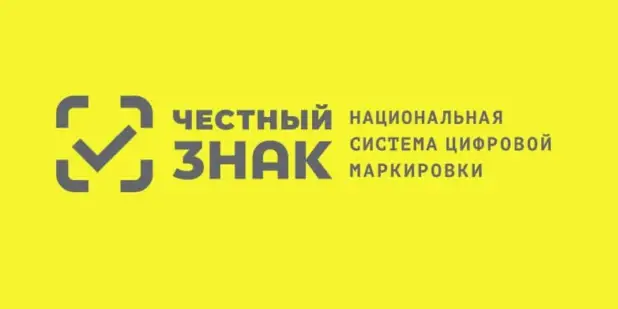As of July 1, 2020, mandatory labeling of shoes, medicines, and tobacco products has been introduced.
The Federal Customs Service of Russia informs that as of July 1, 2020, mandatory labeling of pharmaceuticals, footwear, and tobacco products using identification means has been implemented in Russia, in accordance with the resolutions of the Government of the Russian Federation dated December 14, 2018, No. 1556, July 5, 2019, No. 860, and February 28, 2019, No. 224.
What does the Labeling Obligation Mean
If a product must be labeled, the manufacturer or importer must affix a label with a unique code to each product or print the code on the product's label. The code allows tracking who manufactured or imported it and at what stage of implementation it currently is.
Different labeling methods are provided for different products. For example, RFID tags - microchips - have been selected for fur products, which encrypt information about the object using radio frequency identification. Cigarettes, shoes, and clothing are labeled with two-dimensional Data Matrix barcodes.
The affixing of the label to the product is the responsibility of the manufacturer or importer upon importing the product into Russia. A product without labeling is considered counterfeit. Every participant in the trade system must read the label with a special scanner that sends the data to the system.
Product Labeling Process
The manufacturer or importer affixes a label to each package and sends the batch to the wholesaler. The wholesaler scans the code with a scanner and confirms receipt of the goods. The wholesaler then sells the goods to retail stores. Retail stores also scan the code of each product and update the data in the system.
In the retail store, the product is sold to the end customer. The seller scans the code via the online cash register, which transmits the data to the system. The product is now sold and removed from the system.
The labeling system allows tracking and verifying each individual product unit throughout the goods circulation in the country - to find out exactly where this product came from and at what stage of sale it currently is.
The Labeling System for Goods
The development and support of the entire system is carried out by the Center for the Development of Advanced Technologies (ZDFT). A brand has been developed for the system itself and the labeling codes: "Honest Sign," which, as the name suggests, ensures transparency and honesty of the process for end consumers.
The ZDFT generates the labeling codes, which must be ordered and paid for by the manufacturer or importer. The price for a code is under one Russian ruble, including VAT. An exception is made for life-saving medicines valued at up to 10 euros. For them, the codes are free of charge.
All labeled items are added to the national goods catalog. This is part of the "Honest Sign" platform, which anyone can access by entering the code on the label to obtain all information about the product they hold.
The Consequences of not Labeling Goods
What happens if goods are not labeled?
For the sale of products subject to mandatory labeling without the code, companies face fines and confiscation of goods.
Penalties for Lack of Labeling
Production without labeling:
Individual entrepreneurs: 500 - 1000 euros
Companies: 500 - 1000 euros
If the product is labeled, but the cash receipt does not contain information about it:
Individual entrepreneurs: 150 – 300 euros
Companies: 500 - 1000 euros
Sale without labeling:
Individual entrepreneurs: 500 - 1000 euros
Companies: 500 - 3000 euros
Please note that the specified penalties are only guidelines and may vary depending on the specific case. It is recommended to check the exact provisions of the legal documents governing the labeling regulations.
Goods Groups Subject to Labeling
Which goods must be labeled?
The list of products subject to mandatory labeling is being gradually expanded.
Each product category goes through three phases:
1. Experiment (or pilot phase)
Participation is not mandatory, but it is in the interest of the company: there is time to set up the equipment and practice with free codes.
2. Mandatory registration in the "Honest Sign" system
Registration is not possible without an electronic signature and electronic document exchange. At this stage, the goods management system should be set up, existing stocks labeled, and new batches of products labeled.
3. Prohibition of unlabeled products
Here, penalties apply - the sale of unlabeled products is no longer allowed. Detailed information on the categories of goods requiring labeling, experimental categories, and deadlines for the introduction of mandatory labeling requirements can be found in the "Goods Categories" section.
By 2024, the national labeling system will cover all industries - from cigarettes and medicines to baby food.
Participation in the Goods Management System
To become participants in the goods labeling system, companies must perform a series of steps that vary depending on their role:
- Supplier/Importer
- Logistics company
- Seller or Distributor
To register as a manufacturer or importer for labeling, you must complete the following steps:
1. Apply for an Electronic Signature
Apply for a qualified electronic signature for the head of your organization or your sole proprietorship. The electronic signature for the head of your organization can only be issued by a certification authority of the Russian FNS (Federal Tax Service) (from January 1, 2022).
If you already have an electronic signature issued by a certification authority accredited by the Russian Communications Authority (Ministry of Digital Development, Communications and Mass Media of the Russian Federation) under the new rules from July 1, 2020, you can use it until December 31, 2022, or until the expiration of the certificate.
The signature must be issued to the person authorized to act on behalf of the legal entity/individual entrepreneur without a power of attorney, as indicated in the EGRUL (Unified State Register of Legal Entities) or EGRIP (Unified State Register of Individual Entrepreneurs).
2. Install Required Software
The required software (Cryptographic Protection and Control System, drivers for tokens) as well as installation and configuration guides are provided by the Federal Tax Service (FNS) of Russia.
3. Register in the Goods Management System
Visit the labeling system website to work in the goods labeling system (GIS MT).
Click on the "Register" link located on the opened page. In the drop down menu "Electronic Signature," select the qualified electronic signature of the General Director.
If you are already registered in the Honest Sign system and wish to work with a new goods group, follow these steps:
- Add a new goods group in your profile under the "Participant Data" section.
- Specify the participant type: Manufacturer/Importer, Wholesale, Retail, etc.
- Sign the document package to activate the new goods group.
- Clarify whether a software update is required.
4. Describe your Products in the System
This can be done in two ways:
- Add your products to the account
- Join the GS1 RUS Association
5. Order Labeling Codes
Ordering labeling codes is done through the COMS (Code Ordering Management Station). There are two ways to order labeling codes: via the API and the personal account in the system. Codes will be provided before the start of mandatory labeling.
Participants in the mandatory labeling have two payment methods for the labeling codes to choose from:
- Payment upon issuance of the codes
- Payment according to the application report
6. Technical Solution for Implementing Labeling
Use the technical solution calculator for labeling, taking into account the specifics of the product to be labeled and the specific form factor. For small businesses, it is sufficient to provide a label printer and a bar code scanner. Consider off-the-shelf solutions for small businesses.
For smaller companies, it is recommended to either apply the code at a printing house or use labeling. If you already have equipment for labeling, switch it to print the labeling code.
Medium and large companies apply the code either at a printing house or directly in production. In large production facilities, a non-standard solution may be used, so you may need the assistance of an integrator to customize it.
7. Testing Samples of your Products
Trade participants can test their labeled product samples free of charge before shipping to retail. You can test your products in a special laboratory of Track Mark, established in collaboration with the operator-CRPT. You can also conduct tests directly in large retail chains.


